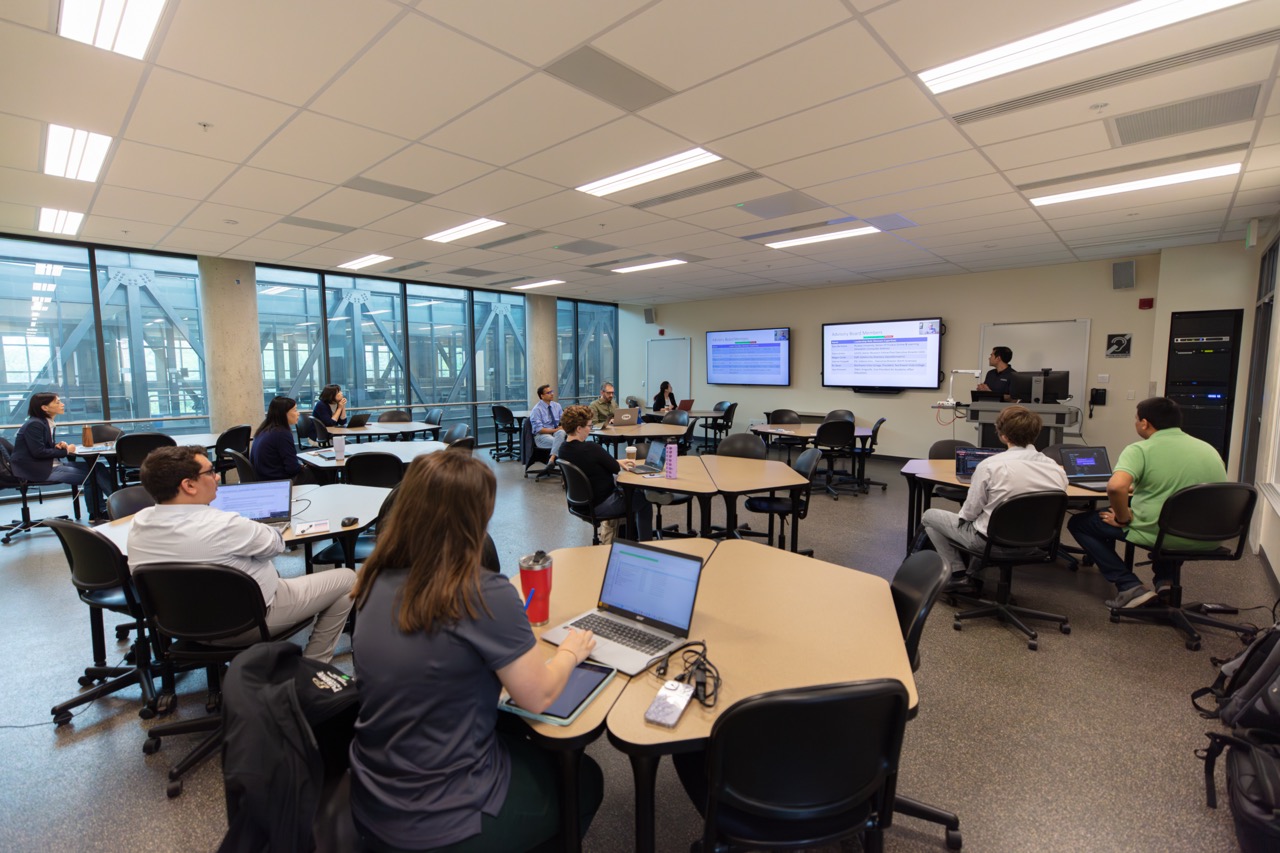RCAC partners with Purdue faculty on NSF-funded cybertraining program
Purdue’s Rosen Center for Advanced Computing (RCAC) is a partner on an $850,000 grant awarded to a team led by Venkatesh Merwade, professor of civil engineering, to create a cybertraining curriculum for climate, water and environmental (CWE) sustainability.
Chief scientist Carol Song and senior research scientist Lan Zhao are the co-PI and senior personnel, respectively, on the award, which will address a gap in training on how to integrate and work with data from different CWE sources by creating a set of cybertraining modules that will incorporate rapidly developing technology and community best practices.
The cyberinstrastructure development team also includes RCAC’s Shawn Rice, lead computational scientist, and Jaewoo Shin, senior computational scientist. They are developing an open, scalable online platform that will support the interactive cybertraining modules and give students access to additional tools and resources RCAC has developed over the years.
The learning modules are organized at three levels of depth: foundation, expert, and developer, with badges and certifications available at each level. While the foundational modules teach essential skills such as coding, the expert modules impart in-depth knowledge and skills such as data processing, simulation, and visualization for specific CWE subareas. The developer modules aim at training students to be able to contribute by expanding existing and creating new tools.
“Our traditional curriculum includes the science of Climate, Water and Environmental Sustainability, which does not equip the students to tackle new challenges using computational tools and cyberinfrastructure,” says Merwade. “Our cybertraining project is filling this critical gap by providing students these critical skills.”
In June 2023, the Purdue team hosted a workshop on campus to educate researchers from around the country about how to use the cybertraining platform to develop and disseminate training modules. On the second day of the workshop, attendees divided into groups and started to develop their own modules.

The recent NSF award is the second round of funding for this project. A previous NSF award in 2018 supported climate and water cyber training courses at Purdue and a series of virtual workshops for participants around the United States.
To advance the advanced training and learning activities in this round, the RCAC team is migrating to a new cybertraining platform that will deliver a seamless connection to large scale computing systems such as Anvil.
Says Song, “we are in an excellent place right now: leveraging the new on-prem composable system Geddes, the large capacity Anvil HPC resource, and the Halcyon web framework that powers the campus research computing management system, the new cybertraining platform will provide a powerful but smooth learning experience to the project’s audience.” The new platform will debut later in 2023.
Another goal of the project is to help researchers make their science “FAIR” – findable, accessible, interoperable and reusable. To that end, the funding has previously supported fellowships to help students turn software applications in development into modules that follow FAIR principles.
This project is an interdisciplinary collaboration at Purdue that includes not only Merwade’s expertise in water resources and RCAC’s cyberinfrastructure development, but also Matt Huber, professor of earth, atmospheric and planetary sciences, and Jake Hosen, assistant professor of forestry and natural resources, who provide climate and environmental expertise, respectively. Nicole Kong, associate dean for research and associate professor of library science, and Wanju Huang, clinical associate professor of learning design and technology, are also part of the team.
The Purdue team is also working with a group led by Adnan Rajib at the University of Texas at Arlington to make the cybertraining modules available to minority institutions at the high school and college levels.
This work is supported by NSF Award Nos. 2230092 and 1829764.
To learn more about Song’s Scientific Solutions Group and other Research Computing resources, visit the RCAC website or contact rcac-help@purdue.edu.
